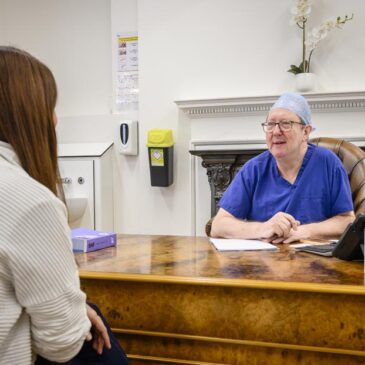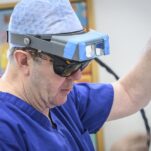Discussing The Results
The outcome could be that you do not have skin cancer, even though a similar appearance is there. Non cancerous growths such as seborrheic keratosis, or pre cancerous lesions called actinic keratosis might be an explanation.
Although relatively safe, the latter can occasionally turn into skin cancer. Straightforward treatment will deal with these conditions and related cosmetic needs.
Your consultation will have established whether deeper issues exist. If so, they will be discussed for as long as you require, along with the best approaches to treatment and to the future.
At Harley Street Maxillofacial, specialists also have the advantage of being able to review results with a multidisciplinary team. If additional input would help to finalise the best treatment for your case, this is readily available.
Types Of Skin Cancer
As mentioned, there are conditions similar to cancer and rare skin cancers. Both should be recognised by our team, although in the majority of cases, diagnosis relates to three different types:
Basal Cell Carcinoma – The most common form of skin cancer, which often appears as you age. Areas which have been subject to high sun exposure are the prime candidates.
Basal cell cancers may be painless, a small pink, or pearly, domed area. In later stages, bleeding, ulceration and the dome turning into a crater are possible. Spread to other parts of the body is rare but adjacent areas may be eroded.
Squamous Cell Carcinoma – The next most common skin cancer, which could occur almost anywhere but is prevalent on the face, ears and lips. Again, generally but not exclusively in older patients.
Squamous cell cancers often take the form of a scaly area, with a pink base, or lesions similar to warts. They may again bleed, or ulcerate and have a greater likelihood of spreading to local areas, or in a few cases on a wider basis.
Malignant Melanoma – The least prevalent form of skin cancer but the most dangerous by far. What perhaps starts off as a new mole can become an invasive element within your body, if not identified and treated.
New moles in adulthood, a large number of moles on your body, significant changes to a mole, or a family history of melanoma are pointers. Neither is melanoma a condition to take risks with, specialist care is required.
Ongoing Personal Support
The best diagnosis is only valuable if acted upon effectively. Being able to offer skin cancer treatment is part of the reason our Harley Street clinic exists.
This was formed to provide full maxillofacial support under one roof, including cancers of the head, neck, or face. For diagnosis, treatment, wider care, or plastic surgery where this is required.
Talk to us about your needs at any stage and we will help to establish the best route forward for you. Our team believe in treating people as the individuals they are.


